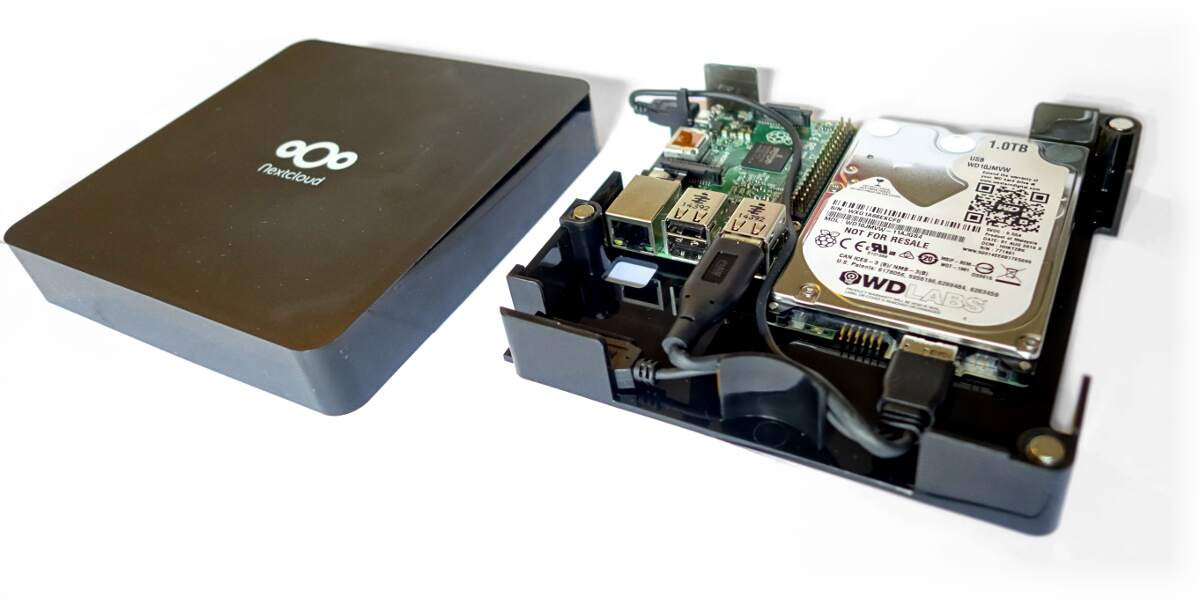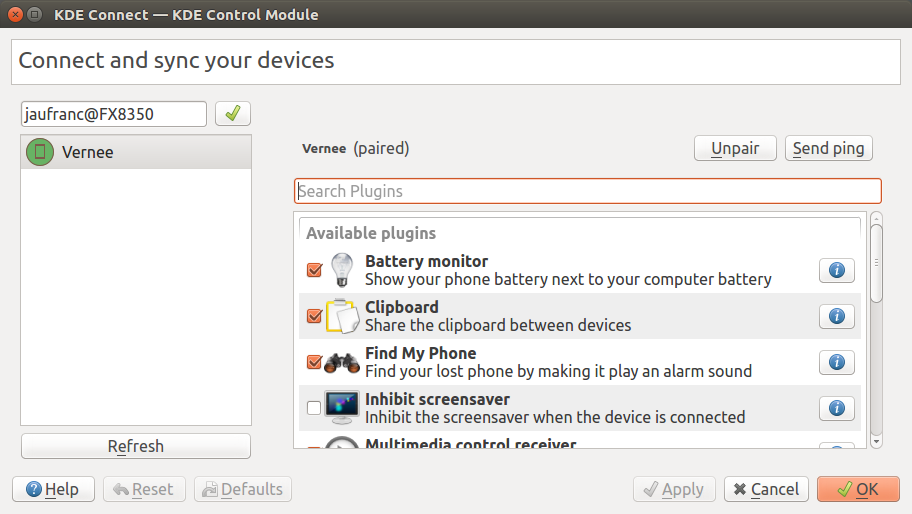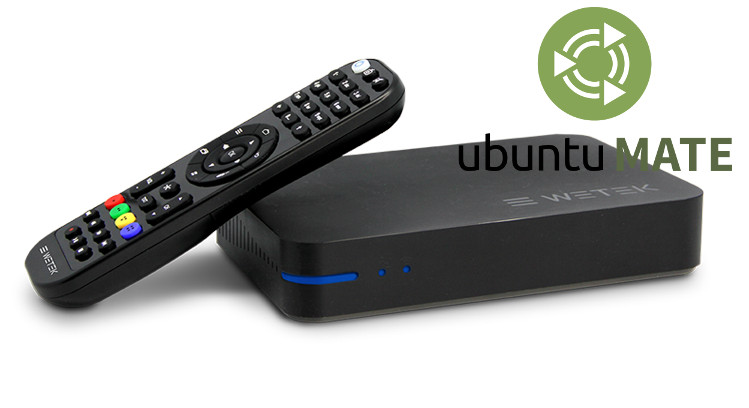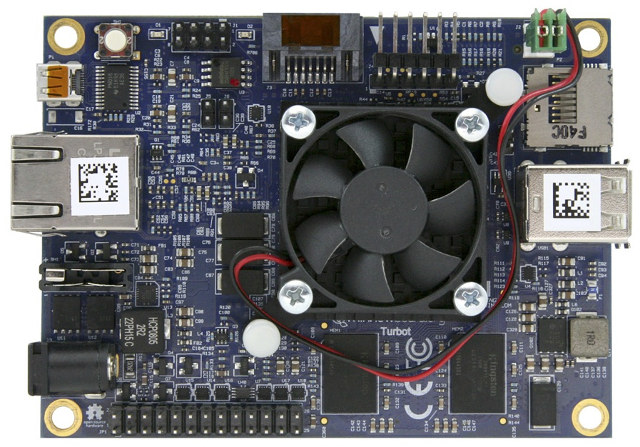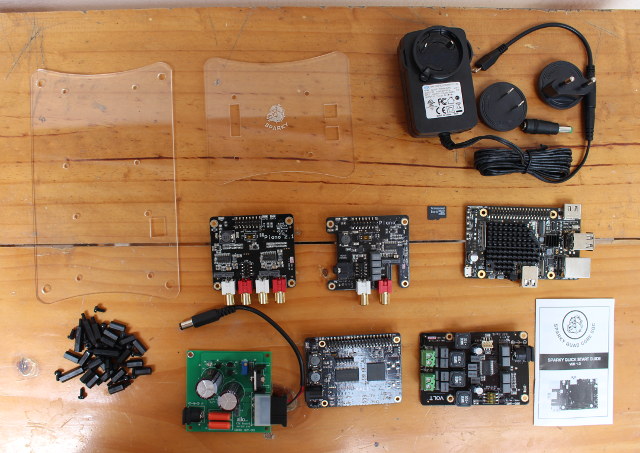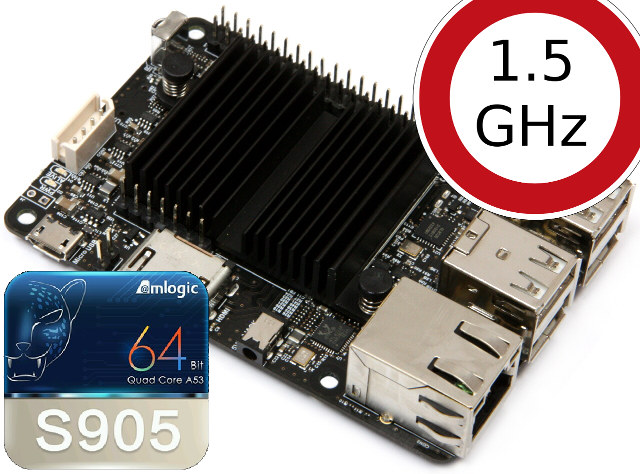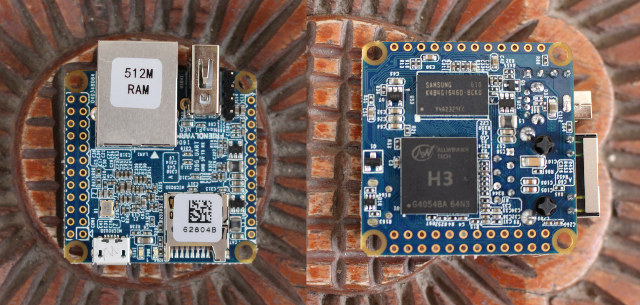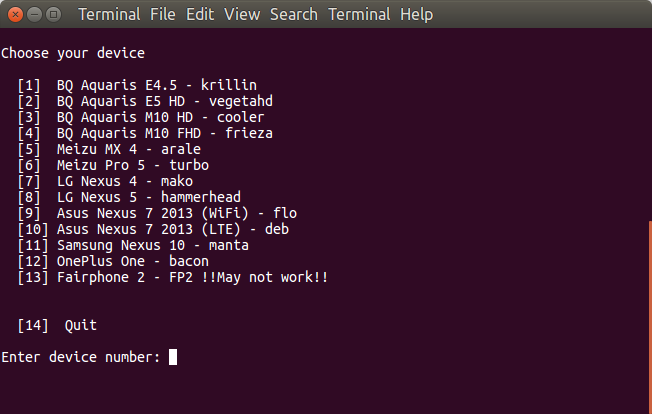While there are plenty of cloud services provided by companies such as Dropbox or Google, you may want to manage you own private cloud server instead for performance and/or privacy reasons. One typical way to do this is to install Owncloud or Nextcloud (a fork of Owncloud), on a Linux computer or board such as Raspberry Pi 3. The former is usually a little expensive for just this task, the latter often results in cable mess, and in both case, some people may not be comfortable with setting it all up. Nextcloud, Western Digital, and Canonical seems to have addressed most of those issues with Nextcloud Box including a 1TB USB 3.0 WDLabs harddrive, Nextcloud case with space for the drive and small ARM or x86 Linux development boards, and a micro USB power supply. The kit also include a micro SD card pre-loaded with Snappy Ubuntu Core, Apache, MySQL […]
Receive Android SMS & Call Notifications in Ubuntu 16.04 with KDE Connect (or Not?)
I often miss calls, and I may be slow to answer SMS on my Android phone, but I’m often in front of my computer, so I decided to look for solutions to show SMS and call notifications on my computer running Ubuntu 16.04. I first found LinConnect, but it does not seem to be developed anymore, and after some more research I discovered that KDE Connect should do the job. The developer just released KDE Connect 1.0 a few weeks ago with add encryption, the ability to reply to SMS from your computer and more… One person posted instructions for Kubuntu 16.04. There’s just a problem it won’t work with Unity desktop, only KDE Plasma, due to a lack of support for Qt 5.6. You can still use the older version without encryption and other new features by “simply” running:
|
1 |
sudo apt install kdeconnect-plasma |
However the installation failed for me:
|
1 2 3 4 5 6 7 8 9 10 11 12 13 14 15 16 17 18 19 20 |
Unpacking kde-cli-tools-data (4:5.5.5-0ubuntu1) ... dpkg: error processing archive /var/cache/apt/archives/kde-cli-tools-data_4%3a5.5.5-0ubuntu1_all.deb (--unpack): trying to overwrite '/usr/share/locale/th/LC_MESSAGES/kmimetypefinder.mo', which is also in package kde-l10n-th 4:4.10.97-0ubuntu1 dpkg-deb: error: subprocess paste was killed by signal (Broken pipe) Preparing to unpack .../libkf5sysguard-data_4%3a5.5.5-0ubuntu2_all.deb ... Unpacking libkf5sysguard-data (4:5.5.5-0ubuntu2) ... dpkg: error processing archive /var/cache/apt/archives/libkf5sysguard-data_4%3a5.5.5-0ubuntu2_all.deb (--unpack): trying to overwrite '/usr/share/locale/th/LC_MESSAGES/processui.mo', which is also in package kde-l10n-th 4:4.10.97-0ubuntu1 dpkg-deb: error: subprocess paste was killed by signal (Broken pipe) Preparing to unpack .../plasma-workspace_4%3a5.5.5.2-0ubuntu1_amd64.deb ... Unpacking plasma-workspace (4:5.5.5.2-0ubuntu1) ... dpkg: error processing archive /var/cache/apt/archives/plasma-workspace_4%3a5.5.5.2-0ubuntu1_amd64.deb (--unpack): trying to overwrite '/usr/share/locale/th/LC_MESSAGES/plasma_runner_recentdocuments.mo', which is also in package kde-l10n-th 4:4.10.97-0ubuntu1 dpkg-deb: error: subprocess paste was killed by signal (Broken pipe) Processing triggers for dbus (1.10.6-1ubuntu3) ... Errors were encountered while processing: /var/cache/apt/archives/kde-cli-tools-data_4%3a5.5.5-0ubuntu1_all.deb /var/cache/apt/archives/libkf5sysguard-data_4%3a5.5.5-0ubuntu2_all.deb /var/cache/apt/archives/plasma-workspace_4%3a5.5.5.2-0ubuntu1_amd64.deb E: Sub-process /usr/bin/dpkg returned an error code (1) |
An “apt […]
WeTek Play 2 Amlogic S905 TV Box Gets Ubuntu 16.04 Mate and Minimal Firmware Images
WeTek Play 2 is the latest TV box from WeTek with DVB or ATSC tuner, and powered by Amlogic S905-H processor. It ships with Android 5.1.1, but Ubuntu 16.04 Mate and Ubuntu 16.04 minimal firmware images have been released by the community. You can try Ubuntu 16.04 LTS Mate (with desktop environment) or the headless Ubuntu 16.04 LTS minimal image by uncompressing the images, and flashing them to a micro SD card with dd or Win32DiskImager. Two default credentials (username/password) are provided: wetek/wetek and root/wetek. This required the latest Play 2 Android firmware, so make sure you get the latest OTA update before trying Ubuntu. The Ubuntu 16.04 images should just boot from the SD card without replacing or affecting your Android installation. If this type of images for Amlogic S905 seems similar, it’s because are based on Hardkernel ODROID-C2 Ubuntu 16.04 images. You can find the Linux kernel for […]
MinnowBoard Turbot SBC Gets a Quad Core Atom E3845 Processor, Better Ethernet, and a Fansink
MinnowBoard Turbot open source hardware SBC was released in 2015 with an Intel Atom E3826 dual core Bay Trail-I processor, 2GB RAM, SATA and Gigabit Ethernet support, and a new version – MinnowBoard Turbot Quad – with a more powerful quad core processor, an heatsink and fan, and better Ethernet connectivity will be launched in December. MinnowBoard Turbot Quad “MBT-4210” board specifications: SoC – Intel Atom E3845 quad core Bay Trail-I processor @ 1.92 GHz with Intel HD graphics @ 542 / 792 MHz (10W TDP) System Memory – 2GB DDR3L 1067 MT/s (Soldered) Storage – 1x SATA2 3Gbs, 1x micro SD card slot, , 8 MB SPI Flash for firmware (Tianocore UEFI, Coreboot, SeaBIOS) Video & Audio Output – 1x micro HDMI connector Connectivity – 10/100/1000M Ethernet RJ-45 connector (Intel i211 instead of Realtek NIC on first board) USB – 1x USB 3.0 host, 1x USB 2.0 host Debugging […]
Allo Sparky Audio Kit Combines an ARM Linux Board with Amplifier, Audio DAC, Reclocker and Capacitance Multiplier Boards
Last year I wrote about Allo Sparky SBC Linux and Android development powered by Actions Semi S500 quad core Cortex A9 processor, which mostly differentiates itself from the competition by the many add-on boards for audio, VoIP, and IoT (WiFi+Bluetooth+Zigbee ). While most of development boards are manufactured in China, Allo company is based in India, and all boards are manufactured there, which could be a benefit to Indian readers who want to avoid potential custom issues with other boards. The company has shipped me their complete audio development kit, and I’ll first check out the hardware, before taking time to experiment with the kit in a few weeks or months… I could find 6 different boards in the kit, which I detailed below, as well as a 5V/3A power supply with AU and EU adapter, a micro USB adapter, a micro SD card apparently pre-loaded with Ubuntu 12.04, a […]
Amlogic S905, S905X, and S912 Processors Appear to be Limited to 1.5 GHz, not 2 GHz as Advertised
When I compared the performance Amlogic S905 and Rockchip RK3368 processors last year, I noticed Amlogic S905 single thread performance not being much faster than the one of Rockchip RK3368, despite the former allegedly clocked at 2.0 GHz against the latter 1.2 GHz. But early this month one member (koschi) on ODROID forums started a thread entitled “No performance difference between 1.5, 1.75 & 2GHz” about ODROID-C2 board. The first post link to Ant-computing website about choosing a processor for a build farm, and one of the tables comparing various ARM and x86 processors with the claim that Amlogic S905 was listed to 1.536 GHz, because “the device claims to run at 2.016 GHz but the kernel silently ignores frequencies above 1.536 GHz!” So koschi did his own tests with 7z and sysbench, using cpufreq-set -u $FREQ to set a fixed frequency between test, and could confirm the issue:
|
1 2 3 4 5 6 7 8 9 10 11 12 13 |
7z b, total MIPS kHZ MIPS 100000 221 250000 605 500000 1252 1000000 2488 1296000 3182 1536000 3705 1752000 3691 2016000 3682 avg. of 3 x sysbench --num-threads=4 --test=cpu run kHZ seconds @4threads seconds @1threads |
[…]
NanoPi NEO Board Gets Armbian Debian 8 & Ubuntu 16.04 with Linux 4.6 & 4.7 (Mainline), h3consumption Power Consumption Tool
We’ve been blessed with a wide range of low cost Allwinner H3 boards thanks to Shenzhen Xunlong Orange Pi and FriendylARM NanoPi boards. Recently, armbian developers have been focusing on NanoPi NEO board, and they’ve now released Debian Jessie and Ubuntu Xenial with Linux 4.6.7 and Linux 4.7.2. The latter is mainline kernel with some patchsets for Ethernet. You can download the Linux 4.6.7 based “beta” images from armbian NanoPi NEO page, and selected the “Vanilla” versions, then flash then one a micro SD card as you would normally do. Linux 4.7.2 based “experimental” images with USB OTG support and schedutil cpufreq governor can be found on the separate server in a temporary directory. Thomas Kaiser explains further: Ethernet and throttling are working (the latter not as efficient as with legacy kernel but at least it protects the SoC from overheating). Please note that all vanilla kernel images currently suffer from […]
Magic Device Tool Helps You Switch Between Android and Ubuntu on Supported Phones
There have only been a few phones released with or supporting Ubuntu so far, and those phones will normally be able to run Android too since Ubuntu Touch relies on Android drivers, and you may decide that Ubuntu is not for you and switch back to Android, or the contrary, if you’ve purchased an Android phone, you may want to install Ubuntu instead. In order to simplify the task of installing operating systems, Marius Quabeck has developed “Magic Device Tool“. As you can see from the screenshot above, 13 phones and tablets are currently supported. You’ll need a computer with Ubuntu 15.04 or greater to install the tool, and I’ve done so on Ubuntu 16.04:
|
1 2 3 4 |
git clone https://github.com/MariusQuabeck/magic-device-tool.git cd magic-device-tool chmod +x launcher.sh ./launcher.sh |
The script will also install phablet-tools if it is not already installed, so if you are not root, you’ll need your account to be member of sudoers. Once the initial setup is done, you’ll […]


